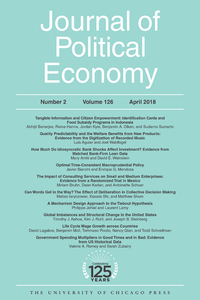Link to the article
Globally, access to preschool has increased dramatically but its quality is often poor. We evaluate two interventions aimed at improving the quality of public preschools in Colombia. The first, designed by the government and rolled-out nationwide, provided preschools with significant extra funding, mainly earmarked for hiring teaching assistants (TAs). The second, for a small additional cost, also offered training for existing teachers. We show that the first intervention did not improve child development, while the second led to significant improvements in children’s cognitive development, especially for those from more disadvantaged backgrounds. We argue these dramatic differences can be explained by the two interventions having different impacts on teachers’ behavior. The first led teachers to reduce the time they spent in the classroom, including on learning activities. The addition of the training offset this adverse effect of TA provision on teachers’ learning activities and improved the quality of teaching.
